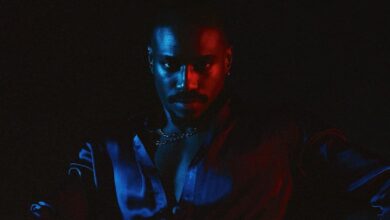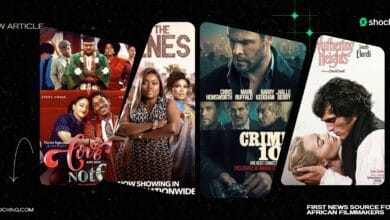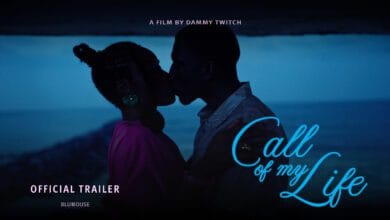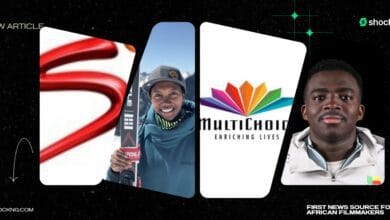The Story⚡
The countdown begins to the 2025 edition of the African International Film Festival (AFRIF), a premier platform for showcasing the continent’s rich cinematic talent. Taking place from October 30 to November 5, 2025, AFRIF promises an immersive experience with a diverse lineup of films, including a selection of captivating Nigerian short films.
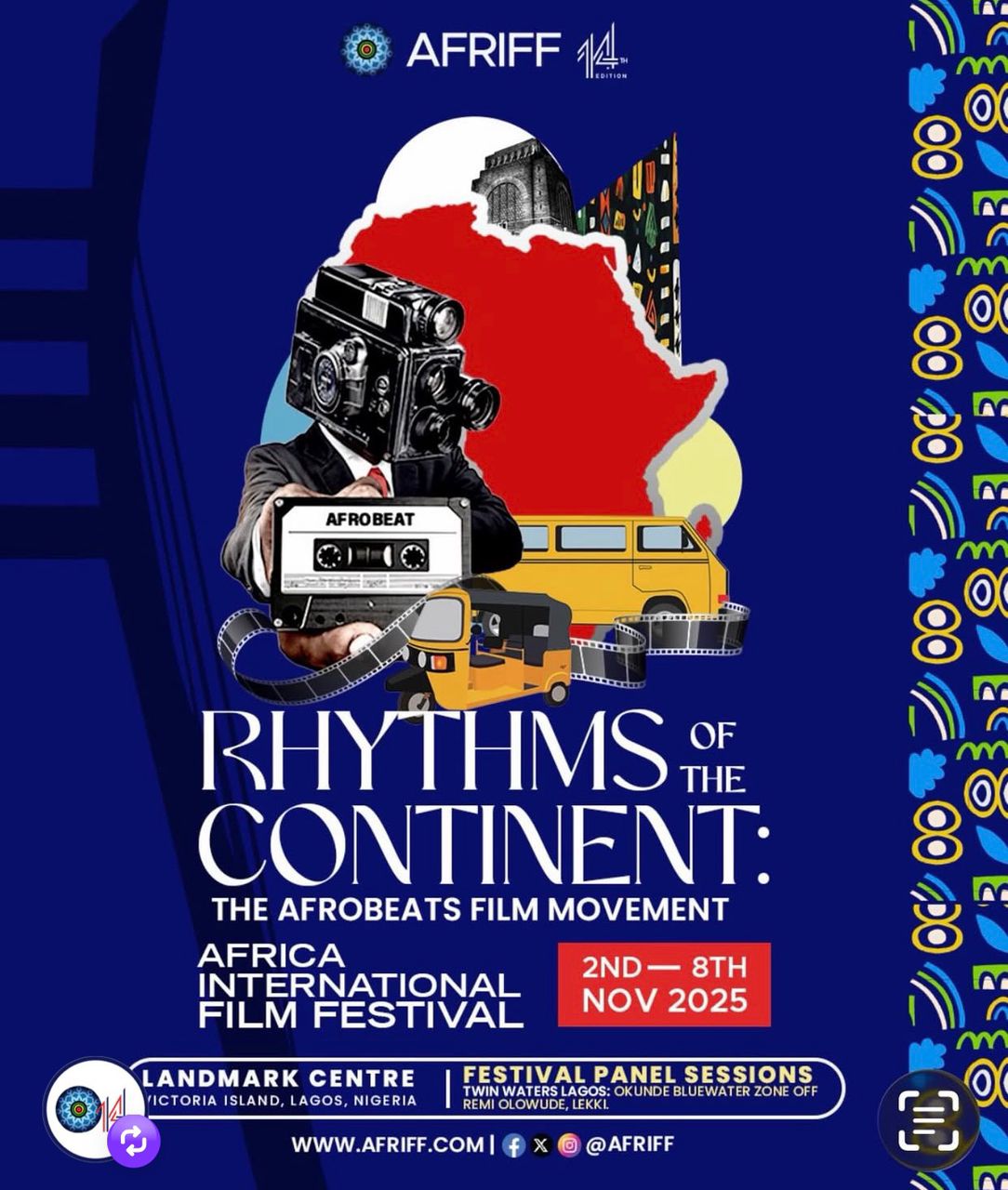
Tell Me More
At AFRIF 2025, some of the best Nigerian short films will be on display, showcasing the country’s rich cultural heritage and cinematic talent. From thought-provoking dramas to visually stunning animations, these films will leave audiences moved, entertained, and inspired.
Here are some of the must-watch Nigerian short films to look out for at the festival.
1. IDIA
Idia is Produced and directed by Winifred Iguwa.
Idia follows a young aspiring dancer who faces ridicule after expressing her desire to take the lead role in a performance. Drawing strength from the legacy of Queen Mother Idia, she must decide whether to shrink herself to fit others’ expectations or stand tall in her own power. This is a story about heritage as armor and history as inspiration.
Nigeria-born, UK-based filmmaker Winifred Iguwa’s short film draws inspiration from Queen Mother Idia of the Benin Kingdom, one of Nigeria’s most powerful historical figures. Set in the UK but rooted in African heritage.
Key Cast include Mia McKenzie, Aiso-osa Ehigiatora, Bonnie Milnes
2. SEED
Seed is co-directed by Chawuko Enakadia and Muhammad Atta Ahmed, produced by Jumoke Azeez, and executive produced by Laolu Obende.
Enakadia and Ahmed tell a story too urgent to tell alone, a mirror held up to culture.
The story tells a journey of one woman’s fight to be seen in a world that defines her by what she births. This is a story about autonomy, identity, and the weight of expectations placed on women’s bodies. Through intimate storytelling, Seed explores the cost of being reduced to reproductive function and one woman’s determination to reclaim her narrative.
Key cast include Uche Nwoko, Kelechi Udegbe, Uzoamaka Power, Bobby Ekpe, Kanyin Eros
3. MR. ROGERS
Mr. Rogers is directed by Daniel Aigbokhaivbo Ehimen and produced by Omoyeni Sholabomi Disu, Daniel Ehimen, and Oladayo Oladejo.
Ehimen is one of those filmmakers whose work keeps appearing at the right festivals. His atmospheric approach to horror, rooted in African spirituality, suggests a director who understands that the most terrifying stories are the ones that feel ancestrally true.
Mr Rogers explores themes of familial bonds, ancestral legacies, and the enduring power of love in the face of darkness. Through its spine-chilling narrative and atmospheric setting, the film delves into the complexities of the human spirit and the secrets that lie buried within the recesses of the soul.
This is horror that doesn’t rely on cheap scares but on the weight of what we inherit.
Key cast include Yusrah Ayinde, Demi Banwo, Imoikor Joseph, Ayo Mogaji, & Princess Obuseh.
4. CHOICES
Choices is directed by Nwamaka Chikezie and produced by Lagos Film Academy in association with Global Philanthropy Alliance.
This is Nwamaka Chikezie’s second appearance in the AFRIFF 2025 lineup. She also directed the feature, To Adaego With Love. Choices explores themes of elections, family loyalty, and tribal allegiance.
The story follows Tega’s father, who has spent years as a political thug, disrupting elections for money to feed the family. This year is different. The choice isn’t just about survival anymore; it’s about what kind of man Tega will become and what kind of community will remain when the votes are counted.
Key Cast includes Olumide Oworu, Tessy Brown, Ikponwosa Gold, and Heavens Obule.
5. TELEPHONE
Telephone is written, directed, and produced by Fimisinuola Adejonwo.
The title promises a gripping tale where suspense meets emotion, reminding us that sometimes, you can’t hang up on fate.
Key Cast includes: Damilola Oni, Daniel Adeshina
6. ÈLÉDÀ ÀYÀNMỌ̀
Èlédà Àyànmọ̀ is directed by Stanley Obi Arinze, created and executive produced by Ifeoma Ojukwu of IFYCABANA Media Company
The title translates to “Threads of Destiny”. This is an epic in miniature, a short film with the scope and ambition of something much larger. Arinze, CEO of 2ru vision pictures, is working with themes that connect personal transformation to ancestral purpose.
Eleda Ayanmo explores the thread of destiny. The film suggests a spiritual reckoning, predetermined paths and confronting everything we thought we knew. This is storytelling rooted in Yoruba cosmology, where destiny is both burden and blessing.
Key Cast include Okusaga Adeoluwa, Ifeoma Ojukwu, Rapop Ewenla, and Chukwube Vitalis Ezeiruaku
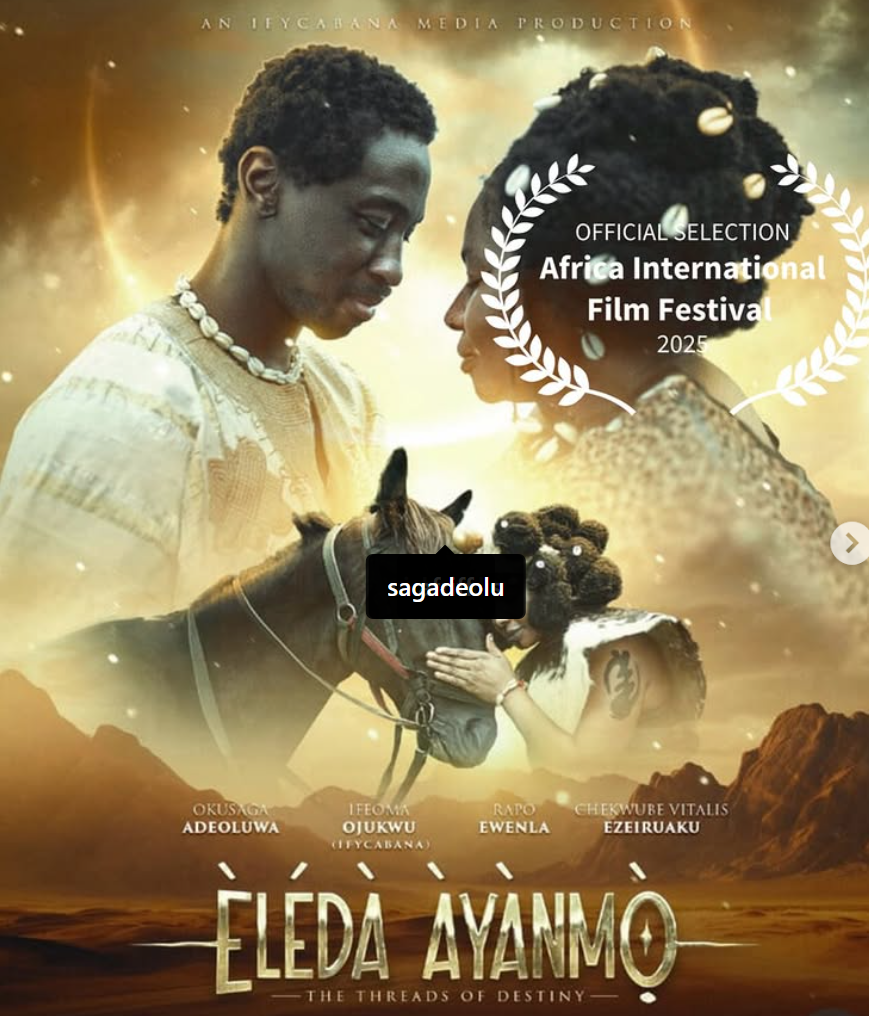
7. ON OUR SKIN
On Our Skin is co-directed by Abiodun Udom and Emmanuel Adejo.
Emmanuel “Story Priest” Adejo is one of Nigeria’s most consistently thought-provoking short film directors. His other works, Isekonu, People’s Court, and the climate change film 2070; all deal with systems of power and the individuals caught inside them. Co-directed with Abiodun Udom and produced under the EbonyLife Creative Academy Alumni Grant
In On Our Skin, Books are being banned. In response, something supernatural rises. The film explores what happens when censorship pushes back against the very ideas it’s trying to erase, and those ideas refuse to stay silent. This is speculative fiction as political commentary, suggesting that the stories we try to bury have a way of resurfacing; sometimes in forms we can’t control.
Key Cast includes Korede Lawal, Johnson Ibeh, Lawrence Olajumoke, Anthony Nwahiri, Magret Chetachi
8. ISEKONU
Isekonu is directed by Emmanuel “Story Priest” Adejo and executive produced by Multichoice Talent Factory.
Emmanuel “Story Priest” Adejo returns with another socially conscious short. Isekonu, which translates to “To Speak of Silence”; He is also Director of On Our Skin, People’s Court, and 2070.
This story follows a widow who stands before her people and her past, torn between survival, guilt, and a silence older than herself. This is a tale of ritual, judgment, and the price women pay for compromise. Because sometimes, even silence demands to be spoken. The film examines harmful widowhood practices and asks what it costs a woman to survive in a system designed to break her.
Key Cast include Adun Osilowo, Seun Kentebe, Tonja Okojie, Timilehin Ojeola, Emiliana Ufort, Morenikeji Uka
9. THE MORAL HIGH COURT
The Moral High Court is directed by Chisom Valerie Ifeakandu and written by Ozioma Ogbaji.
Chisom Ifeakandu takes the courtroom drama format; a genre usually reserved for procedural television, and repurposes it as a reckoning. Shot entirely in black and white, the film is minimalist in structure but devastating in impact.
The story follows five Nigerian women who take the stand: Oseka Abraham, Jessica Essien, Demilade Adesina, Chika Okeke, and Fatima Azeez. Their testimonies span harassment, abuse, and systemic injustice. Across from them sits Barrister Peters, whose defence strategy relies entirely on tradition, victim-blaming, and willful ignorance, the same rhetoric used to silence women in real life. The film doesn’t offer catharsis. It offers clarity.
Key cast include Tosin Adeyemi, Adekanmbi Nimi, Kanyin Eros, Celestina Aleobua, Darasimi Nadi, Bola Stephen
10. BEHIND A LIE
Behind a Lie is directed and produced by Juliet Ibrahim, written by Temmie Badejo, and produced under Juliet Ibrahim Studios. Juliet Ibrahim spent years in front of the camera as one of West Africa’s most recognizable actresses. This psychological thriller, filmed in Nigeria, suggests Ibrahim understands that the most compelling performances happen when the camera isn’t rolling, when we’re alone with the lies we tell ourselves.
The story follows Jane Madu, a renowned relationship coach and social media influencer, who is admired for promoting the image of a perfect marriage. But behind the carefully curated online persona, she is trapped in a cycle of emotional and physical abuse. The film examines the gap between public image and private reality, asking what happens when the person selling happiness can’t find it in her own home.
Key cast include Daniel Etim Effiong, Rosie Okorie, Juliet Ibrahim
11. IRIN AJO (THE JOURNEY)
Irin Ajo (The Journey) is written and directed by Myde Glover, co-directed by Morenikeji Uka, and produced by both filmmakers.
“Irin Ajo” translates to “The Journey”. This is about the journey of human existence; the confused, contradictory, messy business of loving and hating, often at the same time. This is a film about what we discover when we can’t turn back.
The story follows Manuel who embarks on a road trip with his wife, Trish, and their young daughter, Chi, to meet with Trish’s estranged family. As they near their destination, Trish grows increasingly withdrawn, hinting at unresolved tension. Upon arrival, Manuel discovers that things are not as they seem, forcing him to confront hidden truths about Trish, their relationship, and the life they’ve built together.
Key Cast include Timilehin Ojeola, Nneoma Onyekwele, Rotimi Adelegan, Eyiyemi Olivia Rogbinyin
12. SHALL WE MEET TONIGHT
Shall We Meet Tonight is directed by Wapah Ezeigwe.
Co-produced by British-Nigerian Bisi Alimi and Lanre Njoku through Vengiance Productions, Shot on Red camera in Enugu State, this is a film that Alimi insists shows love without apology.
The story centers on Adaora who is about to marry a man she doesn’t love. Her heart belongs to Susanna. This short film frames secrecy as a real tragedy, examining what happens when society forces love into hiding.
Key Cast includes Goodness Emmanuel, Uzoamaka Onuoha, Jasperwills Ebuka, Ugo Doris
13. WHISPERS OF LIGHT
Whispers of Light is co-directed by Emeka Ojukwu and Jumoke Omojola, with Barbara and Erhc Tchinjo Kuate as executive producers, and Victoria Laz as story writer under New Wave Dramatics Studio.
Screened at the Toronto International Nollywood Film Festival, Whispers of Light is a story soaked in pain, grace, and faith. There is a storm outside and one inside. In a continent where faith in the supernatural is taken seriously, this film examines what happens when heaven goes silent and grief becomes unbearable.
This story is about a woman’s grief, the solid wall of heaven’s silence, and a rain-soaked encounter with a kind priest in a quiet church cthat hanges everything. This is a meditation on faith, doubt, and the moments when divine intervention arrives not as thunder but as whispers. The film asks whether miracles are loud declarations or quiet kindnesses offered in the rain.
Key Cast: Lord Frank, Ojo Marvellous Omo, Prince Will John
14. THE GIRL WHO CANNOT LOVE
The Girl Who Cannot Love is directed by Oluwafemi Peter Atoyebi, written by Immanuel Táiyéwò Fáwọlé, and produced by Listening Birds Productions, AOP Productions, and Big Way Entertainment.
Shot in Osun State, Nigeria, this emotionally charged story examines trauma and the lasting effects of harmful cultural practices. Atoyebi takes on the difficult task of portraying how violence disguised as tradition can damage a person’s ability to trust, connect, and love. This is filmmaking that refuses to romanticise pain.
The story follows a gifted recluse who has firmly walled off her heart and a sagacious young warrior who attempts to capture it. Behind her impregnable exterior lies a painful past, one shaped by a cruel tradition disguised as protective love. The film explores how childhood trauma becomes adult isolation and asks whether healing is possible when the wound was inflicted by those who claimed to love you most.
Key cast include Elisha Lekan Akinyosoye, Sharon Alabi, Hazeema Niniola Amudah, Oluseyi Ademilola Fakunle, and Lydia Aderonke Fawole.
15. STEAL, KILL, DESTROY!
Steal, Kill, Destroy! is directed by Joy Isi Bewaji, produced by Adesuwa OmonSolanke, and executive produced by Semper R Film
Joy Isi Bewaji brings an experimental approach to biblical narrative, reimagining ancient stories through a contemporary African lens. Expect bold choices and provocative storytelling.
SKD! is an experimental exploration of the conversations between Satan and his followers over the course of biblical history. Bewaji takes these familiar stories and asks what they look like from the other side; not to glorify evil, but to examine how malevolence operates, persuades, and destroys. This is theology as a psychological thriller.
Key cast include Chikewa Abewu, Imotunde Adeyemo, Bryan Okoye, Olawale Morgan, Anderson Nsirim, Temitope Olaiya, Chykart, Teepee, and Chidinma Ugwu
16. ÀKÓKÒ
Àkókò is directed by S.I. Abrams and executive produced by Soetan Oladapo Micheal.
“Àkókò” means “time” or “season” in Yoruba. At just under 12 minutes, Abrams is working with the clock in more ways than one.
This film explores the concept of preparation meets opportunity. It covers how prepared an individual can be at critical junctions in life. Abrams appears interested in how certain moments define us.
Key Cast include Moshiod Fatah, Simileoluwa Hassan
17. WHAT EMMA WANTS
What Emma Wants is directed by Samuel Kehinde Njoku and produced by Calidad Studios.
Calidad Studios and Samuel S Njoku are no strangers to short films. Heal, Forever, Fry Pan to Fire, and She Was Not at Fault; I Was have all come from their stables. Now they bring a 45-minute exploration of what happens when love turns sour.
This short is a love story told in reverse. A young man’s wife asks for a divorce, and what follows is an excavation of how they arrived at this moment. An observation of the painful, ordinary ways that two people who once loved each other become strangers.
Key Cast include Korede Soyinka, Ejiro Oghene Asagba
18. THE DAY THE HEART DIED
The Day the Heart Died is directed by Russell Oru and executive produced by Mysticum Studio.
Russell Oru didn’t make this film to make you comfortable. He made it because the silence around female genital mutilation has lasted long enough. Oru built the film around what he calls “the truth that forces people to pause.” Selected for the African International Film Festival 2025, this is a director who refuses to look away from difficult truths, and the recognition suggests audiences are ready to confront them too.
The story places Female Genital Mutlation not in a sweeping sociological context but inside a home. The film refuses easy villains. Both parents are shaped by something larger than themselves, and both believe, in their own way, that they’re acting out of love, even when that love has been distorted by harmful tradition.
Key Cast include William Benson, Tosin Adeyemi, Etta Jomaria
19. LEAVING IKORODU IN 1999
Leaving Ikorodu in 1999 is directed by Rashida Seriki, shot by cinematographer Jaime Ackroyd, and edited by Marnie Hollande
Rashida Seriki is supported by the Film4 and BFI Future Takes Fund; one of the UK’s most competitive funding programs for emerging filmmakers. Seriki’s focus has always been clear: telling stories that foreground Black women and document socio-political issues from marginalized perspectives. Leaving Ikorodu in 1999 continues that mission while tackling one of Nigeria’s most persistent narratives; migration, from an angle rarely explored: what if leaving isn’t the answer?
The story follows Ten-year-old Momo who lives in Ikorodu with her aunt Fade and uncle Mahmoud. Her mother migrated to London and has now sent for her. On the surface, this is the familiar story of going abroad for a better life. But during the road trip to the airport, Fade begins questioning whether Momo’s departure is truly for the best.
Key cast include Motunrayo Abiola-Oloke, Tomi Ojo, Tobi Bakre , Sheila Atim.
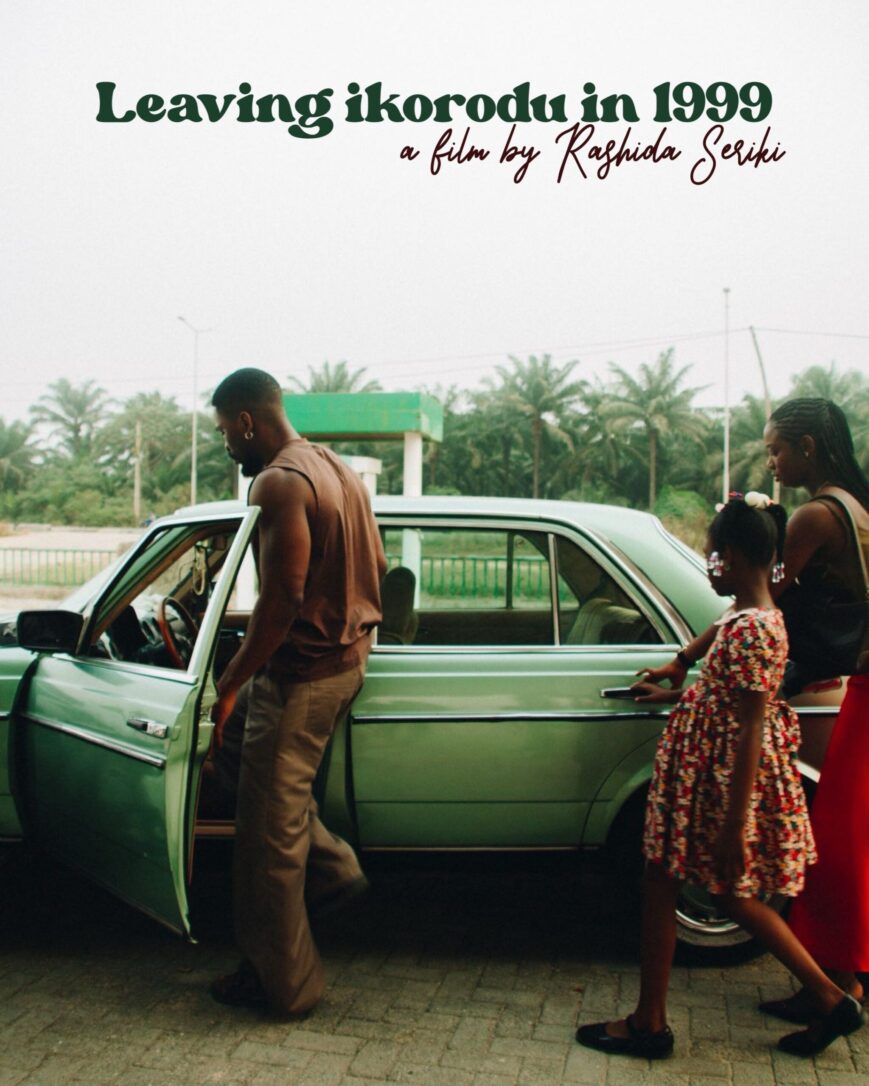
Beyond the short Films: What the Selection Actually Reveals
These nineteen short films reveal the Nigerian film industry maturing through institutional support (Multichoice, EbonyLife), and geographic diversification beyond Lagos. Gender-based violence dominates thematically (28% of films), signaling cinema as a social intervention, while migration narratives shift from aspiration to interrogation.
In Summary
The short film has always been the space where new and established filmmakers take risks they can’t afford to take elsewhere. No studio notes. No box office pressure. Just a story, a camera, and the belief that someone, somewhere, needs to see it.
AFRIFF 2025 is bringing all of this for festival attendees to experience and see what the next generation of filmmakers is capable of.
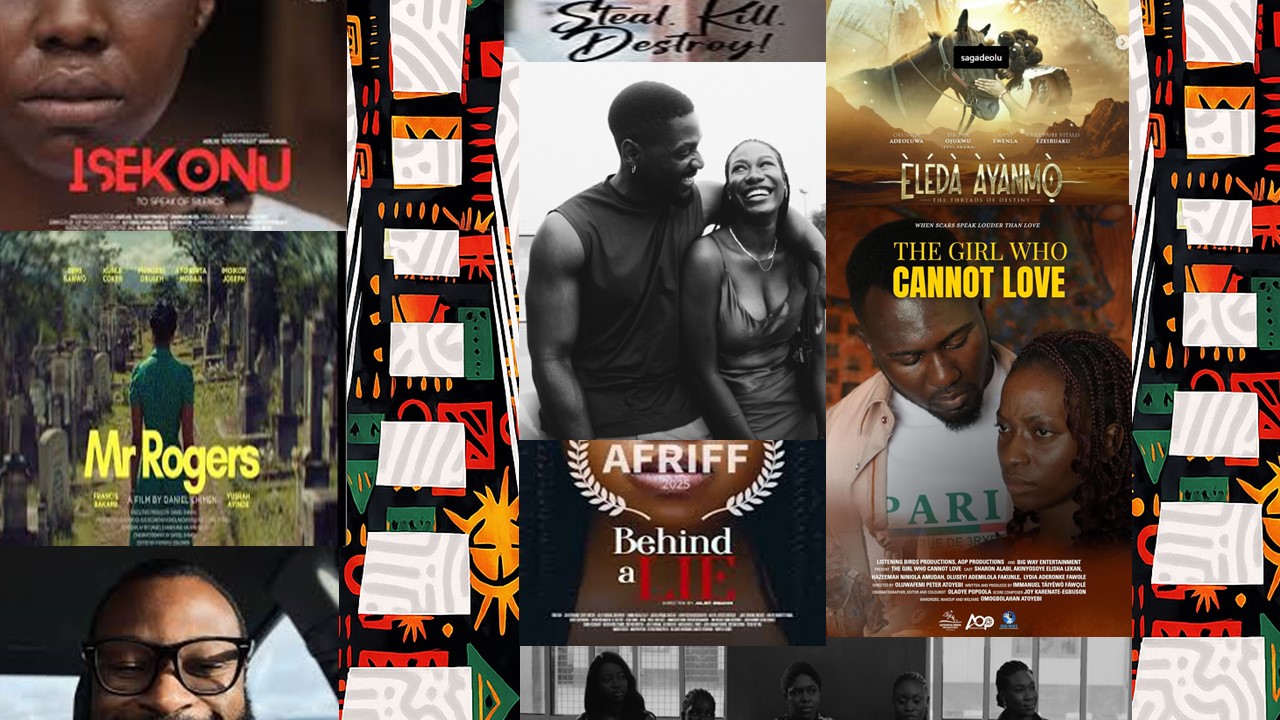
Thanks for Reading.
Shockng.com covers the big creators and players in the African film/TV industry and how they do business.
Let’s be friends on Instagram @Shockafrica
